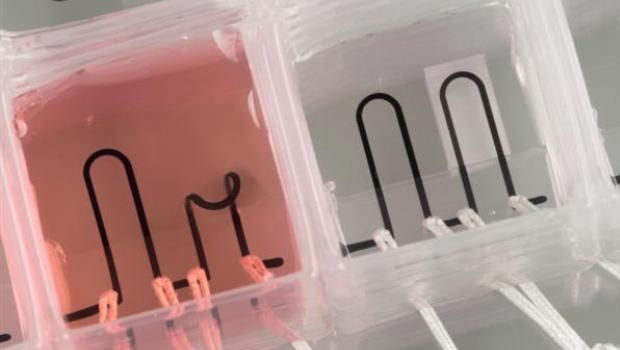A research team at the Wyss Institute for Biologically Inspired Engineering at Harvard University and the Harvard John A. Paulson School of Engineering and Applied Sciences (SEAS) researchers have managed to 3D print an organ in a single chip. This chip has a fully integrated sensing system and this could be a big breakthrough in the medical fraternity. The organs-on-chip have the same structures and functions of the specific organ. The researchers have created microarchitecture for the lungs, heart, intestine, and tongue.
This cross-sectional tissue enables the researchers to conduct experiments and carry out tests. Moreover, these tissue chips give instant feedback as they are equipped with sensors that can measure the response to drugs and induced diseases. The researchers can perform the tests without any fear from the animal rights activists. They can also conduct tests on a wider range of patients who are suffering from complex diseases and problems.
Keeping the ethical issues aside, it is difficult to test on animals. Multiple tests have to be done on numerous animals and blood samples have to be taken many times. This cumbersome process can now be synchronized into one single step using a chip. Johan Ulrik Lind, a postdoctoral fellow at the Harvard John A. Paulson School of Engineering and Applied Sciences (SEAS) said that this technology will not only allow customization of technology, it will simplify data acquisition.
To create this 3D printed chip, multi-material lithographic 3D printing processes are used. For this process, different 3D printable inks were used which had ‘soft drain’ sensors. Jennifer Lewis, Hansjorg Wyss Professor of Biologically Inspired Engineering said that the development of the chip was a clear example of how 3D printing technology could be used in the medical world.
Source: 3ders.org
